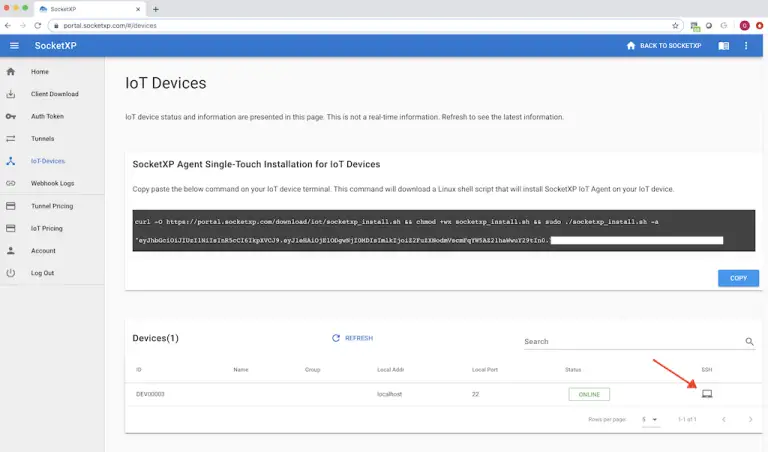Unlocking Potential with USB Over IP on Raspberry Pi
Are you ready to unleash the full potential of your Raspberry Pi? Discover the power of USB over IP and take your connectivity to the next level.
Key Takeaways:
- USB over IP technology allows for seamless connectivity and unlocks the full potential of Raspberry Pi.
- FlexiHub software provides an easy setup for USB over IP connections on Raspberry Pi.
- Raspberry Pi can be configured as a USB-over-IP server using open-source software.
- Building a wireless USB over IP hub using Raspberry Pi and VirtualHere USB server enables remote access to USB devices.
- USB over IP on Raspberry Pi allows for running multiple operating systems simultaneously, expanding its capabilities.
Understanding USB Over IP
Before delving into the implementation of USB over IP on Raspberry Pi, let’s first understand what it is and how it can enhance your device’s capabilities.
USB over IP technology allows you to extend the functionality of your Raspberry Pi by enabling seamless connectivity between USB devices and the Pi over an IP network. This means that you can access and control USB devices connected to your Pi from any remote location, just as if they were physically connected.
The technology works by virtualizing USB ports on your Raspberry Pi and transmitting the USB data over an IP network. This allows you to utilize the full potential of your USB devices, whether it’s a printer, a webcam, or even a storage device, without any physical limitations.
With USB over IP, you can create a versatile setup where multiple devices can be accessed and used simultaneously. This opens up a world of possibilities, from creating a wireless USB hub to running multiple operating systems on your Pi. The flexibility and convenience offered by USB over IP make it an invaluable tool for unlocking the full potential of your Raspberry Pi.
| Advantages of USB Over IP on Raspberry Pi |
|---|
| Enables remote access to USB devices |
| Allows for seamless connectivity |
| Offers flexibility to run multiple operating systems simultaneously |
| Eliminates the need for physical proximity to USB devices |
Conclusion
USB over IP technology is a game-changer when it comes to unlocking the full potential of your Raspberry Pi. By extending the reach of USB devices and providing seamless connectivity, it opens up a world of possibilities. From creating wireless USB hubs to running multiple operating systems, USB over IP offers flexibility and convenience that can enhance your Raspberry Pi experience. So, take advantage of this technology and explore the unlimited potential of USB over IP on Raspberry Pi.
FlexiHub: Easy USB Over IP Setup on Raspberry Pi
Looking for a hassle-free way to enable USB over IP functionality on your Raspberry Pi? Explore the convenience of FlexiHub and unlock seamless remote access to your USB devices. With FlexiHub, you can connect and use USB devices from anywhere in the world as if they were directly connected to your Raspberry Pi.
FlexiHub is a powerful software solution that allows you to share USB devices over IP networks. It works with both Windows and Linux operating systems, making it compatible with a wide range of devices. Whether you want to access a printer, webcam, or any other USB device, FlexiHub simplifies the process by creating a virtual connection over the network.
The setup process for FlexiHub on Raspberry Pi is straightforward. Simply install the software, create an account, and start sharing your USB devices. You can easily manage your connections and grant access to other users if needed. FlexiHub provides a secure and encrypted connection to ensure the safety of your data.
With FlexiHub, you can take full advantage of USB over IP functionality on your Raspberry Pi. Gain the flexibility to access USB devices remotely, whether you’re at home, in the office, or on the go. Say goodbye to the limitations of physical proximity and embrace the convenience of wireless connectivity. Start unlocking the potential of your Raspberry Pi today with FlexiHub.
FlexiHub Features:
- Easy setup and user-friendly interface
- Secure and encrypted connection
- Ability to share USB devices over IP networks
- Support for both Windows and Linux
- Remote access to USB devices from anywhere in the world
- Manage and grant access to other users
| Operating System | Setup Steps |
|---|---|
| Windows |
|
| Linux |
|
Setting Up Raspberry Pi as a USB-Over-IP Server
Want to turn your Raspberry Pi into a powerful USB-over-IP server? Follow these simple steps to set up your own server and enjoy remote access to your USB devices.
To begin, you’ll need to install the required software on your Raspberry Pi. Start by downloading and installing the open-source USB/IP software. This software allows you to share USB devices over the network, effectively turning your Raspberry Pi into a USB-over-IP server.
Once the software is installed, connect the USB device you want to share to your Raspberry Pi. Open the USB/IP software and configure it to recognize the connected USB device. You’ll need to specify the IP address of your Raspberry Pi and the USB device you want to share. Once the configuration is complete, the USB device will be available for remote access.
Now, you can connect to your Raspberry Pi from any device on the same network. Install the USB/IP client software on the device you want to use to access the USB device remotely. Enter the IP address of your Raspberry Pi and connect to the server. You’ll now be able to use the USB device as if it were directly connected to your device, even if it’s physically located elsewhere.
Example Table (Device Mapping)
| Device Name | USB/IP Server IP Address |
|---|---|
| Printer | 192.168.1.100 |
| External Hard Drive | 192.168.1.100 |
| Webcam | 192.168.1.100 |
Setting up Raspberry Pi as a USB-over-IP server opens up a world of possibilities. You can access and use USB devices from any device on the network, eliminating the limitations of physical proximity. Whether you want to print documents, access files on an external hard drive, or use a webcam, the USB-over-IP server on your Raspberry Pi makes it all possible.
So, why limit yourself to the USB ports on your Raspberry Pi? Unlock the full potential of your USB devices by setting up a USB-over-IP server and enjoy seamless remote access wherever you are.
Building a Wireless USB Over IP Hub with Raspberry Pi
Dreaming of a wireless USB over IP hub that can seamlessly connect your USB devices? Learn how to build one using a Raspberry Pi and unlock the freedom of remote USB connectivity.
Building a wireless USB over IP hub with Raspberry Pi is a cost-effective and efficient solution to access and control USB devices from anywhere. One popular method involves using VirtualHere USB server, which allows you to create a wireless hub and connect USB devices remotely.
To get started, you’ll need a Raspberry Pi board, a compatible USB Wi-Fi dongle, and the VirtualHere USB server software. After setting up the Raspberry Pi with the necessary operating system, install the VirtualHere USB server using the provided instructions from their website. Once installed, configure the server to recognize your USB devices and make them available for remote access.
With the wireless USB over IP hub up and running, you can now connect to it from any device on the same network. Simply install the VirtualHere client software on your computer or mobile device, and you’ll be able to access and control the connected USB devices as if they were directly connected to your device.
By building a wireless USB over IP hub with Raspberry Pi, you can eliminate the limitations of physical USB cables and access your USB devices from anywhere within your network. Whether you’re working remotely, traveling, or simply want the convenience of wireless connectivity, this solution provides the flexibility and freedom to unlock the full potential of your USB devices.
| Advantages of Building a Wireless USB Over IP Hub |
|---|
| Eliminates the need for physical USB cables |
| Provides remote access and control of USB devices |
| Offers flexibility and convenience in accessing USB devices from anywhere within the network |
| Allows multiple devices to connect and use USB devices simultaneously |
Remote Access to USB Devices with USB Over IP
With USB over IP on your Raspberry Pi, say goodbye to physical limitations and enjoy the freedom of remote access to your USB devices from anywhere in the world. This groundbreaking technology allows you to connect and control USB devices connected to your Raspberry Pi remotely, eliminating the need for direct physical access. Whether you want to access a printer, scanner, or any other USB device, USB over IP makes it possible with just a few simple steps.
One popular software solution for establishing USB over IP connections on your Raspberry Pi is FlexiHub. This user-friendly software enables seamless USB device sharing over the network, allowing you to access and use USB devices connected to your Raspberry Pi from any remote location. With FlexiHub, you can easily set up USB over IP connections and manage devices remotely, making it an ideal choice for both Windows and Linux users.
But that’s not all. Another method to unlock the potential of USB over IP on your Raspberry Pi is by setting it up as a USB-over-IP server using open-source software. By following detailed instructions, you can configure your Raspberry Pi to act as a server, allowing you to access USB devices remotely. This not only expands the capabilities of your Raspberry Pi but also provides a cost-effective solution to share USB resources across multiple devices.
Building a Wireless USB Over IP Hub with Raspberry Pi
If wireless connectivity is what you’re after, you can take it a step further by building a wireless USB over IP hub with your Raspberry Pi. By using the VirtualHere USB server, you can create a hub that wirelessly connects USB devices to your Raspberry Pi. This way, you can place your USB devices anywhere within the network range and access them remotely. Whether you’re working from a different room in your home or even from a different country, you’ll have the convenience of accessing your USB devices without any physical limitations.
Unlocking the potential of your Raspberry Pi with USB over IP opens up a world of possibilities. Not only does it allow for remote access to USB devices, but it also gives you the ability to run multiple operating systems simultaneously. This means you can experiment with different setups, switch between operating systems seamlessly, and take full advantage of the versatility offered by USB over IP on your Raspberry Pi.
| Benefits of USB over IP on Raspberry Pi | Advantages |
|---|---|
| Remote Access to USB Devices | Eliminates the need for physical proximity to USB devices, enabling access from anywhere. |
| Cost-effective Solution | Share USB resources across multiple devices using your Raspberry Pi. |
| Wireless Connectivity | Build a wireless USB over IP hub for convenient remote access to USB devices. |
| Run Multiple Operating Systems | Experiment with different setups and switch between operating systems seamlessly. |
With USB over IP on your Raspberry Pi, the possibilities are endless. Unlock the full potential of your USB devices and explore the world of remote connectivity with ease. Embrace the freedom and flexibility USB over IP offers and take your Raspberry Pi experience to new heights.
Running Multiple Operating Systems with USB Over IP
Did you know that USB over IP enables you to run multiple operating systems on your Raspberry Pi concurrently? Explore the possibilities of this powerful capability.
With USB over IP technology, you can transform your Raspberry Pi into a versatile device that can support different operating systems simultaneously. Whether you need to test software compatibility, experiment with different environments, or simply have a specific OS for various tasks, USB over IP opens up a whole new world of flexibility.
By configuring your Raspberry Pi as a USB-over-IP server, you can connect multiple devices to it and access them remotely from other devices. This means you can run one operating system on your Raspberry Pi while simultaneously accessing and controlling USB devices connected to it from a different device running a different operating system. For example, you can use your Raspberry Pi as a server running Linux while accessing USB devices connected to it from a Windows or macOS device.
Running multiple operating systems on your Raspberry Pi allows you to maximize its potential and expand its capabilities. You can easily switch between different environments, perform cross-platform testing, or even create complex setups for specific projects. With USB over IP, the possibilities are endless.
| Advantages of Running Multiple Operating Systems with USB Over IP |
|---|
| 1. Enables cross-platform testing and software compatibility verification |
| 2. Provides a convenient way to switch between different environments |
| 3. Allows for the creation of unique setups for specific projects |
| 4. Maximizes the potential and versatility of your Raspberry Pi |
Expanding the Horizons of Raspberry Pi with USB Over IP
Raspberry Pi’s potential knows no bounds when combined with USB over IP technology. Discover how this dynamic duo can revolutionize your projects, from home automation to industrial applications.
With USB over IP, you can unleash the full power of Raspberry Pi by seamlessly connecting USB devices remotely. Whether you are controlling smart home devices, running multiple virtual machines, or accessing industrial equipment, USB over IP provides the flexibility and convenience you need.
One of the methods to harness USB over IP on Raspberry Pi is by using FlexiHub software. This user-friendly software allows you to set up USB over IP connections effortlessly. By following the step-by-step instructions, you can establish connections on both Windows and Linux environments, enabling you to access USB devices remotely with ease.
If you prefer an open-source solution, you can set up your Raspberry Pi as a USB-over-IP server. Utilizing open-source software, you can configure your Raspberry Pi to act as a server, allowing other devices to connect to USB devices remotely. This cost-effective method provides a convenient way to access USB devices from anywhere without the need for physical proximity.
Additionally, you can take your USB over IP setup to the next level by building a wireless USB over IP hub using a Raspberry Pi and VirtualHere USB server. This setup eliminates the need for physical connections and allows you to connect USB devices wirelessly. It offers the flexibility to place your Raspberry Pi in a central location while accessing USB devices from anywhere within the range of the wireless network.
| Benefits of USB Over IP on Raspberry Pi |
|---|
| Remote Access: Control USB devices from any location, eliminating the need for physical access. |
| Multiple Operating Systems: Run different operating systems simultaneously on Raspberry Pi. |
| Expand Raspberry Pi’s Capabilities: Unlock a vast range of applications and possibilities by leveraging USB over IP technology. |
Unlock the true potential of your Raspberry Pi by harnessing the power of USB over IP. From accessing USB devices remotely to running multiple operating systems, USB over IP enables you to take your projects to new heights. Explore the endless opportunities and unleash the power of Raspberry Pi with USB over IP technology.
Conclusion
By leveraging USB over IP technology, Raspberry Pi owners can truly unleash the device’s potential and achieve seamless connectivity like never before. Embrace the endless possibilities and unlock a new level of productivity and innovation.
Throughout this article, we have explored various methods to unlock the potential of USB over IP on Raspberry Pi. The first source highlighted the use of FlexiHub software, providing step-by-step instructions on how to set up and use this software to create USB over IP connections. The second source introduced a free method to set up a Raspberry Pi as a USB-over-IP server, utilizing open-source software and offering detailed configuration instructions. Lastly, the third source explained how to build a wireless USB over IP hub with a Raspberry Pi using VirtualHere USB server, allowing for remote connectivity of USB devices.
With USB over IP technology, Raspberry Pi users can remotely access USB devices, expanding the device’s capabilities and flexibility. Additionally, this technology enables the simultaneous running of multiple operating systems on a Raspberry Pi, opening up new possibilities for experimentation and development.
Unlock the full potential of your Raspberry Pi by exploring the vast possibilities USB over IP technology offers. Discover new ways to connect, innovate, and create. With seamless USB over IP connectivity, your Raspberry Pi becomes a powerful tool for productivity, experimentation, and innovation. Embrace the endless possibilities and take your Raspberry Pi experience to a whole new level.
FAQ
What is USB over IP technology?
USB over IP technology allows for the remote access and control of USB devices over an IP network, enabling users to use USB devices connected to a different machine as if they were directly connected to their own machine.
How can USB over IP be set up on Raspberry Pi?
There are several methods to set up USB over IP on Raspberry Pi. One method is by using FlexiHub software, which provides step-by-step instructions on how to establish USB over IP connections on Raspberry Pi.
Can USB over IP be set up on Raspberry Pi for free?
Yes, it is possible to set up USB over IP on Raspberry Pi for free. There are open-source software options available that allow you to configure a Raspberry Pi as a USB-over-IP server, with detailed instructions provided for the setup process.
How can I build a wireless USB over IP hub with Raspberry Pi?
To build a wireless USB over IP hub with Raspberry Pi, you can utilize the VirtualHere USB server. This section outlines the steps to create the hub and connect USB devices remotely, enabling wireless connectivity.
What are the benefits of USB over IP on Raspberry Pi?
USB over IP on Raspberry Pi offers the convenience of remotely accessing USB devices, allowing users to connect and control USB devices from a different location. It provides flexibility and eliminates the need for physical proximity to the devices.
Can USB over IP on Raspberry Pi run multiple operating systems simultaneously?
Yes, USB over IP technology on Raspberry Pi enables the ability to run multiple operating systems simultaneously. This feature allows users to experiment with different operating systems and expand the functionalities of their Raspberry Pi.
What are the potential applications of USB over IP on Raspberry Pi?
USB over IP on Raspberry Pi opens up a wide range of potential applications. Users can remotely access and control USB devices, set up USB-over-IP servers, run multiple operating systems, and explore various real-world applications that harness the versatility of USB connectivity.
- About the Author
- Latest Posts
Mark is a senior content editor at Text-Center.com and has more than 20 years of experience with linux and windows operating systems. He also writes for Biteno.com






